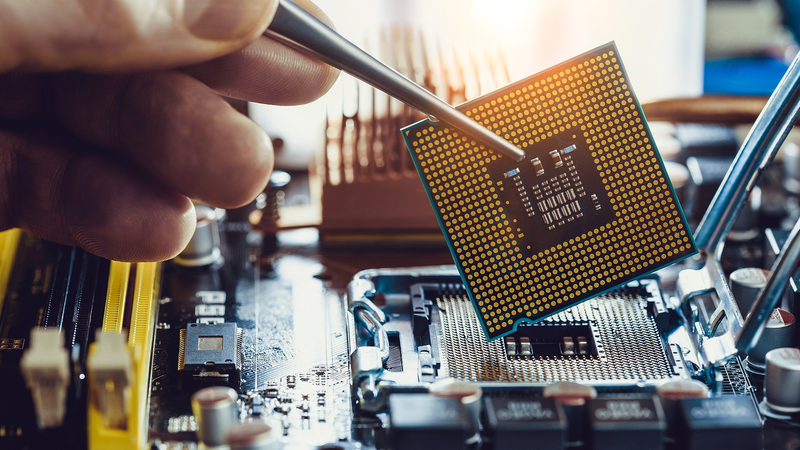In a move that reshapes the semiconductor landscape, the China Semiconductor Industry Association (CSIA) clarified that China’s retaliatory tariffs on American imports apply only to chips manufactured in U.S.-based fabs. Chips produced in the Taiwan region and South Korea remain exempt from these measures.
CSIA explained that the determining factor for a chip’s country of origin is the location of its wafer fabrication facility, rather than the site of final packaging or design. This technical yet significant detail means that manufacturers like AMD and Nvidia, which produce chips in the Taiwan region, will avoid the high tariffs. In contrast, companies such as Intel and Texas Instruments, which manufacture chips in U.S. fabs, will continue to face tariff charges.
The clarification sent ripples through global markets as shares of AMD and Nvidia surged by 6 percent and 2.6 percent respectively, while Intel saw its stock fall by more than 6 percent. This development follows Beijing's recent decision to raise tariffs on U.S. imports to 125 percent in response to U.S. tariff hikes on Chinese goods, which reached 145 percent.
Industry experts, including He Hui from Omdia, noted that basing the country of origin on the wafer fabrication facility is a game changer. "It is clear that some chips made in the U.S. will still be taxed even if they are packaged in China," He Hui explained. This move could bolster China's domestic chipmaking strategy and strengthen local supply chains, as foreign semiconductor firms increasingly adopt a "China for China" approach.
Market analysts were surprised by this pivot from the traditional view that determined origin based solely on packaging location. Instead, the focus on fab location highlights the complexities of global semiconductor production and suggests potential long-term benefits for tech dynamics worldwide.
Reference(s):
China's tariff on chips is not as widespread as you might think
cgtn.com




